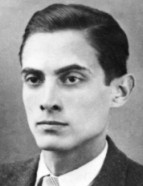

However, the historical matrix of Álvaro Cunhal’s thinking does not give rise to a historiographical vocation, since, in his view, making history was far more important than writing it, a field in which the historian plays a clearly subsidiary role, albeit one with intrinsic merit.
It was the vicissitudes of clandestine political struggle, namely imprisonment throughout the 1950s, that ultimately created the conditions that led the communist leader to engage in regular and varied cultural and research work, which took the form of a drawings and paintings, literary narratives, essays, translations, controversial plays and even in a study leading to a doctoral dissertation.
Álvaro Cunhal’s historical writings were written at the beginning of this period. The first version of the only truly historical study he authored, As Lutas de Classes em Portugal nos Fins da Idade Média [ Class Struggles in Portugal at the End of the Middle Ages ] , dates from the second half of 1950, as do the Notas à margem do Prefácio de António Sérgio à Crónica de D. João I [ Notes on the Preface by António Sérgio to the Chronicle of King João I ] , while, on a more limited level, in the review of Herculano e o Liberalismo em Portugal [ Herculano and Liberalism in Portugal ] by António José Saraiva (written in 1951), he considered that the lack of context for Herculano’s thinking in the evolution of the social life of his time prevented the formulation of any general judgement on the merit attributable to the work, and indicated that it had been written on 22 March 1951.
This work is financed by national funds through FCT - Foundation for Science and Technology, I.P, in the scope of the projects UIDB/04311/2020 and UIDP/04311/2020.
